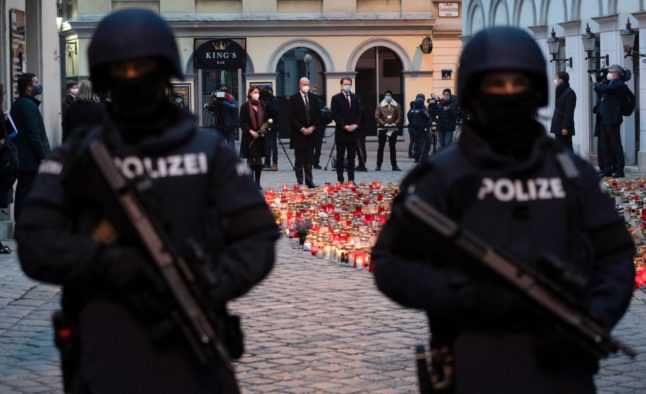Mohamed Mahmoud (30) was active on Twitter and Facebook and regularly posted and featured in Isis propaganda videos. However, his social media accounts have been quiet since November 11th and expert sources in Vienna told the Österreich tabloid that they believe he is dead.
His last posting on his social media accounts was reportedly the sentence “God calls you out of the darkness”.
An earlier posting was a photo of a battered copy of the Koran and a white flower, with the text “The Koran is the salvation, the sword of victory.”
Österreich’s source said that this was a clear message that Mahmoud had died. “When Firas Houidi, another Vienna jihadist was killed in Syria, this image was also posted on his social media accounts.”
In August, Mahmoud posted photos of himself posing in front of decapitated corpses. He later posted an execution video which showed him shooting a kneeling hostage in the back of a head with a Kalashnikov, and he called for “brothers and sisters” in Austria and Germany to commit terror attacks against unbelievers.
He was reported to be seriously injured on October 16th when a US drone attacked a convoy in the Isis stronghold of Raqqa. Mahmoud, a rapper from Berlin called Deso Dogg (real name Denis Cuspert), and 14 other jihadists were believed to be in the convoy.
So far, Austria’s police intelligence agency has not confirmed the reports of Mahmoud’s death.
“Many jihadists post their own death notices, so that they can then assume a false identity,” it said in a statement.
Mahmoud was sentenced to four years in prison in Vienna in 2007 on charges of forming a terrorist group, and fled to Germany and Egypt after his release. He was later arrested in Turkey, but set free again and then is believed to have joined Isis in Syria and assumed the name Abu Usama.



 Please whitelist us to continue reading.
Please whitelist us to continue reading.